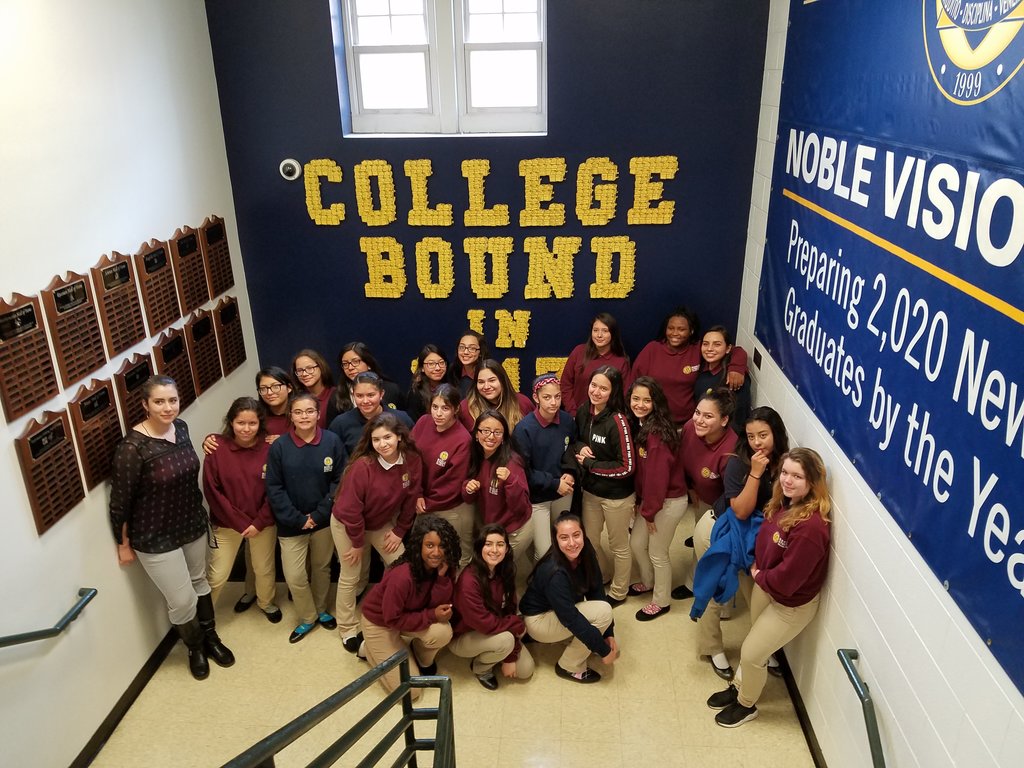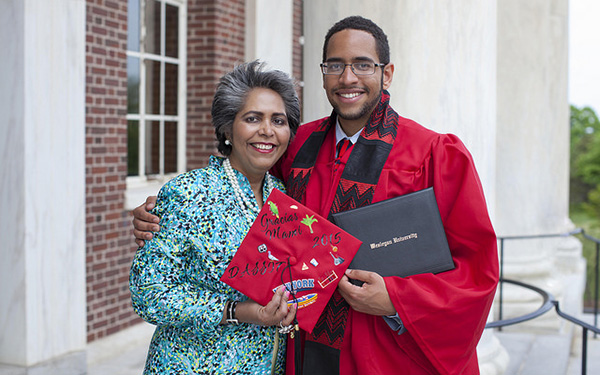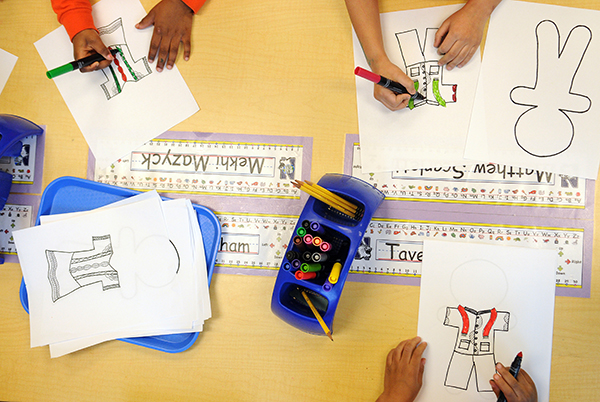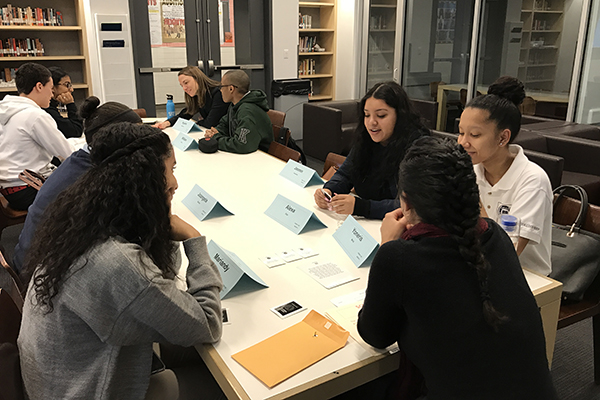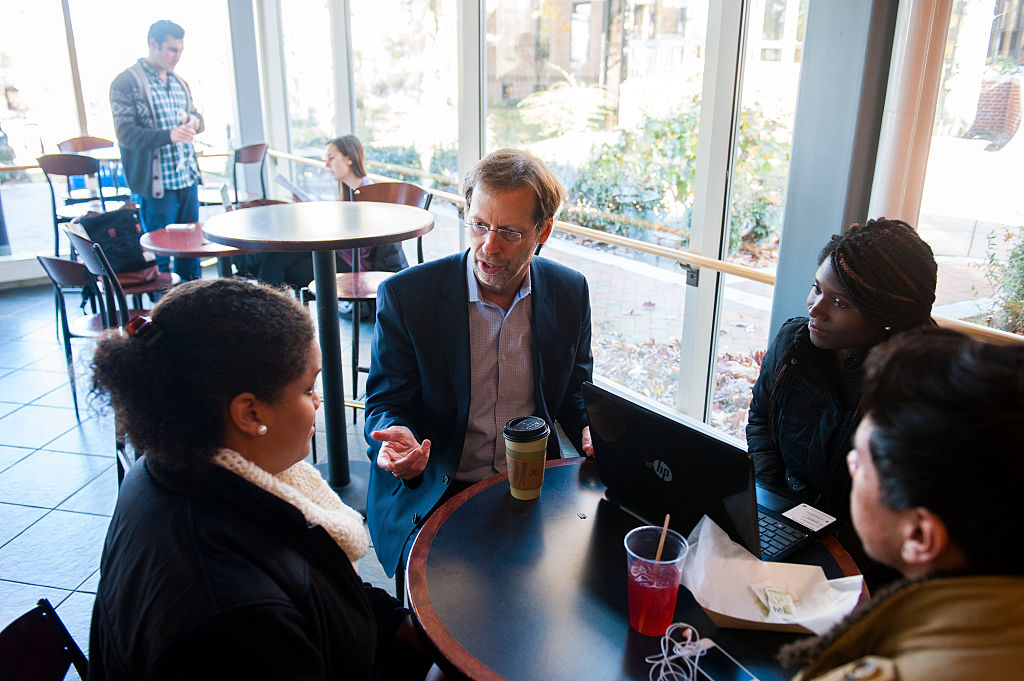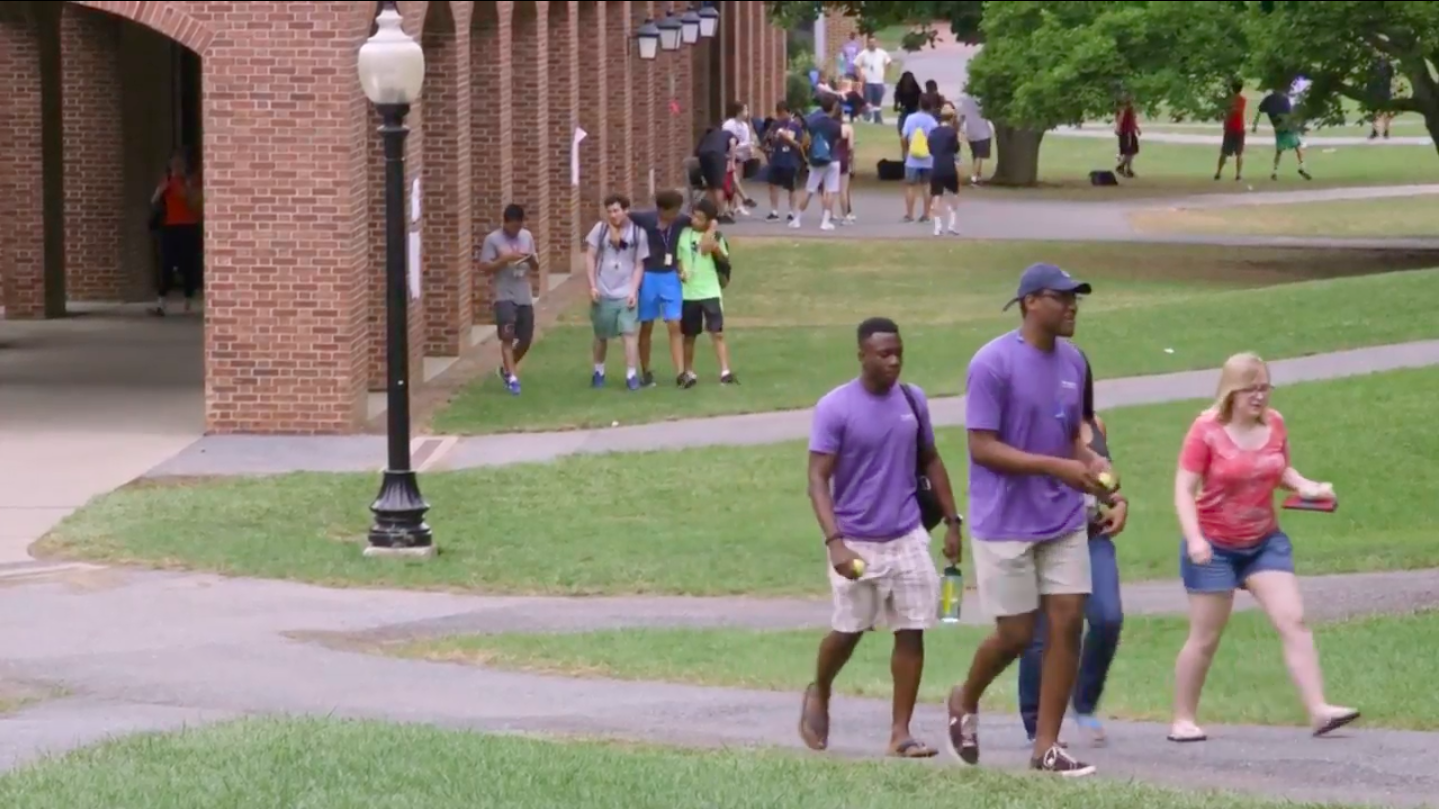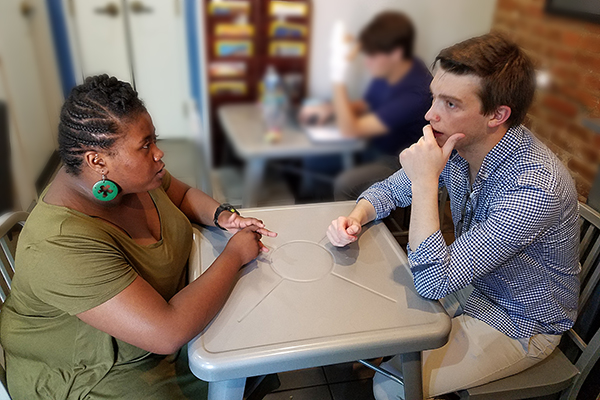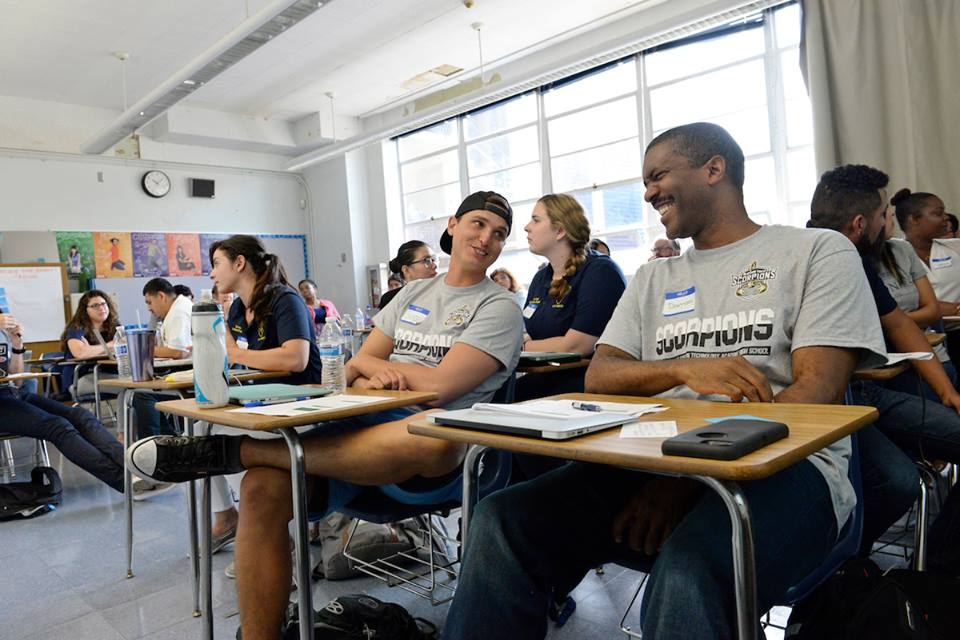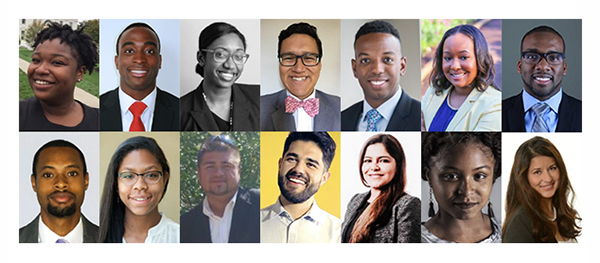McCurry & Toll: Smoothing the Path — Better Preparing Students for Long-Term Success
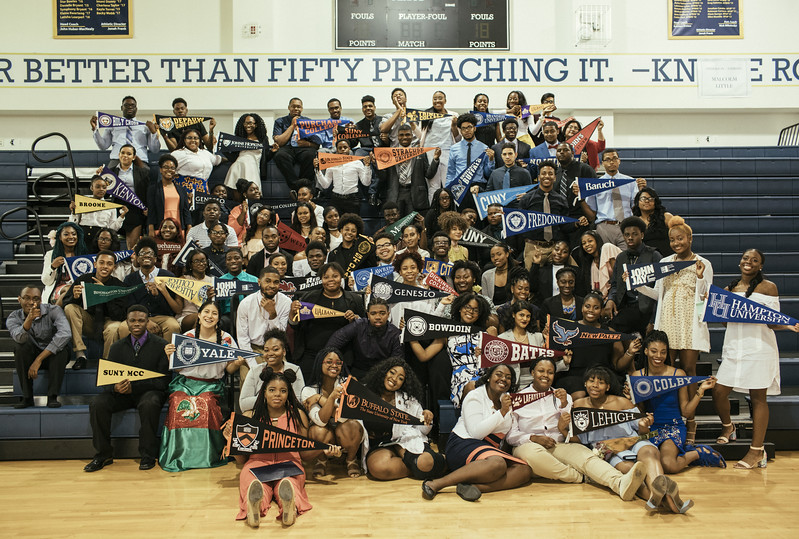
The graduating class of Achievement Brooklyn High at Senior Signing Day, 2017. (Photo credit: Achievement First)
“Rocky.”
That’s how Christine, an Achievement First alumna, described her transition to college. She told us that studying in high school had been much easier than studying in college, where she now had to learn so much of the content on her own. In her biology and chemistry labs — where she was the only black student — Christine hesitated to ask questions because she “felt dumb.” Her silence only made her feel more lost.
That conversation with Christine happened more than five years ago. Since then, she’s graduated from the University of Rochester with a degree in brain & cognitive science. She’s learned a lot and committed to constantly improving. So have we.
Eighty-five percent of our students, like Christine, are first-generation college students who attend college to pioneer a transformative path for themselves and often for their families and communities. The current estimated six-year college graduation rate for our alumni is 50 percent, and our latest data indicate it will climb further. We are proud that our expected college completion rate is more than five times the national average for low-income students, but it’s still not where we want it to be. We are very clear that the ultimate measure of our impact is the long-term success of all of our graduates.
Through learning from other schools and networks, and from many alumni like Christine, we’ve made a number of key changes — and we are still working hard to figure out what more we need to do.
The changes have been most dramatic at our high schools. Almost all AF high school students will now take five Advanced Placement classes, including one math and one science, before they graduate, since national data clearly show that early exposure to rigorous, college-level content is essential. Our students regularly write and rewrite research papers and participate in college-seminar-style discussions. They are also encouraged to seek extra help during office hours with teachers, so that they feel more comfortable doing so with their college professors. Given the AP and SAT success of our high school students, U.S. News & World Report recently ranked AF Amistad High the No. 1 school in Connecticut, ahead of all of the elite high schools in the state’s wealthy suburban communities.
Beyond the classroom, 95 percent of our high schoolers participate in an internship, pre-college program, or summer enrichment program before they graduate. Our college counselors are vigilant about helping all students develop “best-fit” college lists, based not only on a student’s interests and needs, but also on the colleges that post the highest graduation rates for low-income students. Once our students graduate, our alumni counselors help troubleshoot issues, find on-campuses resources, and collect feedback to help us continue to improve our programs for the next generation of scholars.
We’ve also changed our approach to professional development. We’ve doubled the amount of training for teachers and leaders to facilitate deeper intellectual engagement in the content they will teach, so that they can then push students to do the same. We’ve increased our focus on issues of diversity and inclusiveness because we know identity work is crucial in helping students achieve their goals, especially in a world that too often fails to affirm the assets they bring.
As a network, we’re working to increase the deep student investment necessary for success in college. One way we are doing this is a bold bet with a new K-8 design — AF Greenfield. In an unconstrained way, we wanted to take everything we have learned and ask fresh what it would take to position our students to be as prepared as possible for long-term success.
Our evolving answer involves less full-class instruction and more targeted, small group instruction. We’ve made a bet on more personalized and self-directed learning with students completing “playlists” and advancing on their own when they have demonstrated competence in a given area. Students have access to more enrichment experiences — extended exploration in music, STEM inventions, dance, and martial arts. Students also participate in twice weekly “Circles,” based on the best practices of our friends at Valor Collegiate, to build their social-emotional skills and create a strong, supportive peer community.
In addition, three times a year, students choose from a curated list of exciting, two-week “Expeditions” to get more hands-on learning about a topic they are passionate about. Instead of a typical parent-teacher report card conference, our Greenfield students run meetings with their own “Dream Teams,” a group of family members, teachers, and community mentors. Students update their teams on their progress and goals — and build student agency, confidence, and investment as they go.
And we know that there is more still we need to do, especially to ensure the long-term success of our scholars in an ever-changing world. Through this deep commitment to continuous improvement, our hope is that the next generation of “Christines” will arrive at college feeling better set up for success and on a smoother path to graduation and becoming the leaders our country needs.
Christine hopes the same thing. Today, she’s a teacher.
Doug McCurry and Dacia Toll are co-CEOs of Achievement First.
Your Alumni
Story Here
We Recommend
-
Noble Network of Charter Schools: It’s Not Just About Going to College, It’s Also About Leaving to Learn Outside Chicago
-
King & Peiser: College Completion — Charter Schools as Laboratories
-
Q&A With UNCF CEO Michael Lomax: We’ve Got to Garner More Resources for Low-Income Kids for This Journey “To and Through” College
-
Gilchrist: My Charter School Saved My Life
-
Exclusive: Data Show Charter School Students Graduating From College at Three to Five Times National Average
-
WATCH: At Newark’s North Star Academy, 100% of the Class of 2017 Is Going to College
-
WATCH – The Alumni Tell Their Stories: College Gave Jadah Quick Upward Mobility
-
The Data Behind The Alumni: Unbundling Facts, Figures, and Caveats


